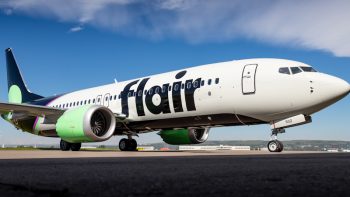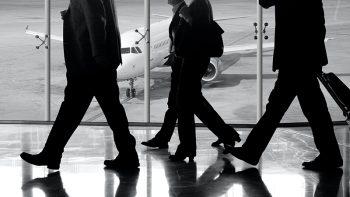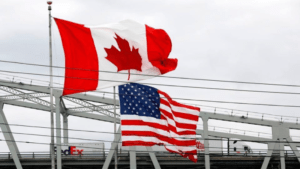
Porter Airlines says it isn’t following Air Canada’s lead by pulling back on some of its U.S. routes -- at least not yet.
Air Canada said on 14FEB it will reduce capacity to Florida, Las Vegas and Arizona as the U.S.-Canada tariff dispute simmers and the Canadian dollar's struggles continue. WestJet said its U.S. business is down 25% and hinted schedule changes might be needed.
Porter has rapidly expanded in the U.S. during the past year, with new flights to California, Florida and other destinations. But a Porter official told Open Jaw it isn't making any moves right now.
“There are no decisions related to adjusting routes at this time,” airline spokesman Brad Cicero said in an email.
“We are mindful of the overall economic situation and are monitoring booking patterns. We initially saw some softening of select U.S. leisure markets, but it is too early to determine if there are any strong trends one way or the other. Many routes have increased bookings in recent days,” he said.
“If Canadians choose to travel more domestically, 75% of our peak summer capacity is for routes within Canada,” Cicero added. “There is also the opportunity for more Americans to visit Canada to benefit from the exchange rate.”
Speaking on a 14FEB conference call to discuss Air Canada’s fourth quarter and yearly earnings for 2024, Mark Galardo, Executive Vice President, Revenue & Network Planning and President, Cargo, said it’s too early to know how Canadian currency issues and the U.S.-Canada tariff dispute will play out. But he noted Air Canada will reduce capacity to such U.S. destinations as Florida, Las Vegas and Arizona beginning in March.
It wasn’t immediately clear how much capacity will be removed from the market, but it’s a big move for Air Canada, and the strongest signal yet that Canadians are angry at how the U.S. government has treated them.
Robert Kokonis, President of AirTrav Inc. in Toronto, told Open Jaw that, while he can't speak for business travel, leisure flights to the States is "baked in."
"Travellers who have already booked in February or March for spring break travel to the U.S. are unlikely to change given the difficulty in sourcing flights and accommodations elsewhere (Mexico and the Caribbean), along with the cost of paying for ticket changes and potentially to cover advance paid hotel and resort rooms," he said. "I have a sense that more of the weakening that is showing up in airline advance booking curves is manifesting itself in dates from late March, early April onwards."
Amra Durakovic, Head of Communications for Flight Centre Travel Group, said her company has seen some cancellations across a variety of popular U.S. destinations, especially in southern states like Florida and Arizona that traditionally attract Canadians.
The tariff wars are one issue, but the Canadian-US exchange rate also is a big problem.
"Major tourist hubs like Chicago, Las Vegas, and New York City have also experienced cancellations, as some travellers shift their focus to destinations where their dollar stretches further," she recently told Toronto.com.
"The Caribbean, particularly Antigua, along with other sun destinations such as Costa Rica, Mexico, and Thailand, are also trending among Canadian travellers this year," she said.

WestJet CEO Alexis von Hoensbroech recently said that interest in flying to the U.S. has dropped by 25% in recent weeks. He didn’t say the Calgary-based company would match Air Canada by reducing capacity, but suggested changes might be needed.
“We are watching and we don’t know how sustainable this is,” Von Hoensbroech said at a press conference on 13FEB. “If we feel we need to adjust our schedule, then we will.”
WestJet said demand for travel to the United States has been “soft” over the last few weeks since a possible trade war started brewing between Canada and its biggest trading partner.
“What we have seen, though, since the tariff announcements is that our sales from Canada into the U.S. have actually dropped very significantly,” von Hoensbroech said, adding that the exchange rate is likely also factor in lower demand.
A Leger poll taken from Jan. 31 to Feb. 3 found that 48% of Canadians are less likely to visit the U.S. this year compared to 2024. That’s up significantly from a mid-January Narrative poll that found 29% of Canadians were less like to visit the States this year.
The National Post reports that another Leger poll, this one taken from Feb. 7 to 10, revealed 56% were ready to cancel or avoid travel to the U.S.
The U.S. Travel Association has warned that even a 10% drop in Canadian visits to the States could translate to a $2 billion decline in revenue and the loss of 14,000 jobs.






